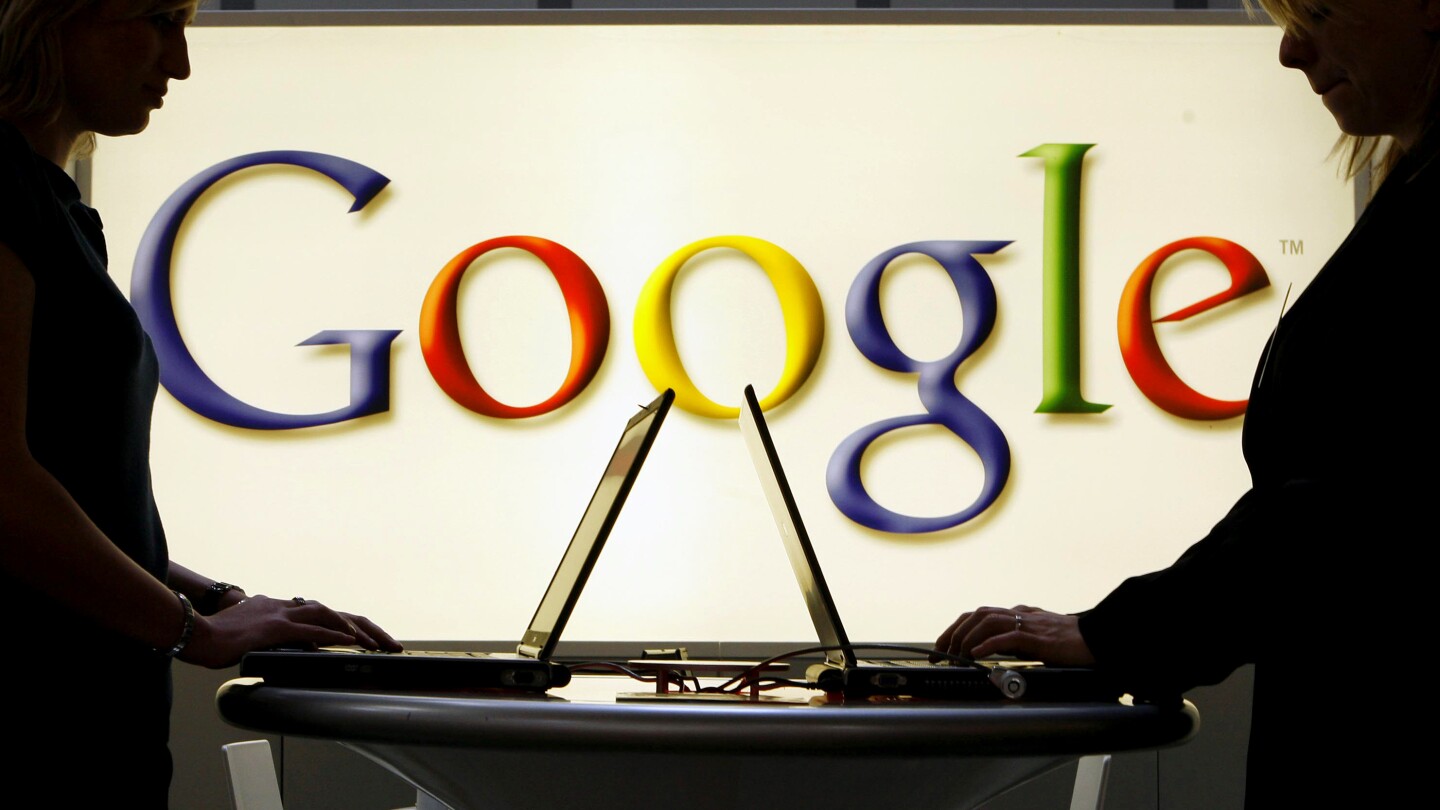LONDON (AP) — Google won a court challenge on Wednesday against a 1.49 billion euro ($1.66 billion) European Union antitrust fine imposed five years ago that targeted its online advertising business.
The EU’s General Court said it was throwing out the 2019 penalty imposed by the European Commission, which is the 27-nation bloc’s top antitrust enforcer.
“The General Court annuls the Commission’s decision in its entirety,” the court said in a press release.
The commission’s ruling applied to a narrow portion of Google’s ad business: ads that the U.S. tech giant sold next to Google search results on third-party websites.
Regulators had accused Google of inserting exclusivity clauses in its contracts that barred these websites from running similarly placed ads sold by Google’s rivals. The commission said when it issued the penalty that Google’s behavior resulted in advertisers and website owners having less choice and likely facing higher prices that would be passed on to consumers.
But the General Court said the commission “committed errors” when it assessed those clauses. The commission failed to demonstrate that Google’s contracts deterred innovation, harmed consumers or helped the company hold on to and strengthen its dominant position in national online search advertising markets, it said.
The ruling can be appealed, but only on points of law, to the Court of Justice, the bloc’s top court.
The commission said in a brief statement that it “will carefully study the judgment and reflect on possible next steps.”
Google did not respond immediately to a request for comment. The company’s legal victory comes a week after it lost a final challenge against a separate EU antitrust case for its shopping comparison service that also involved a hefty fine.
They were among three antitrust penalties totaling about 8 billion euros ($8.9 billion) that the commission punished Google with in the previous decade. The penalties marked the beginning of an era of intensifying scrutiny for Big Tech companies.
Since then, Google has faced escalating pressure on both sides of the Atlantic over its digital ad business. It’s currently battling the Justice Department in a U.S. federal court over allegations that its dominance over the technology that controls the sale of billions of internet display ads constitutes an illegal monopoly.
British competition regulators this month accused the company of abusing its dominance in the country’s digital ad market and giving preference to its own services.
EU antitrust enforcers carrying out their own investigation suggested last year that breaking up the company was the only way to satisfy competition concerns about its digital ad business.

